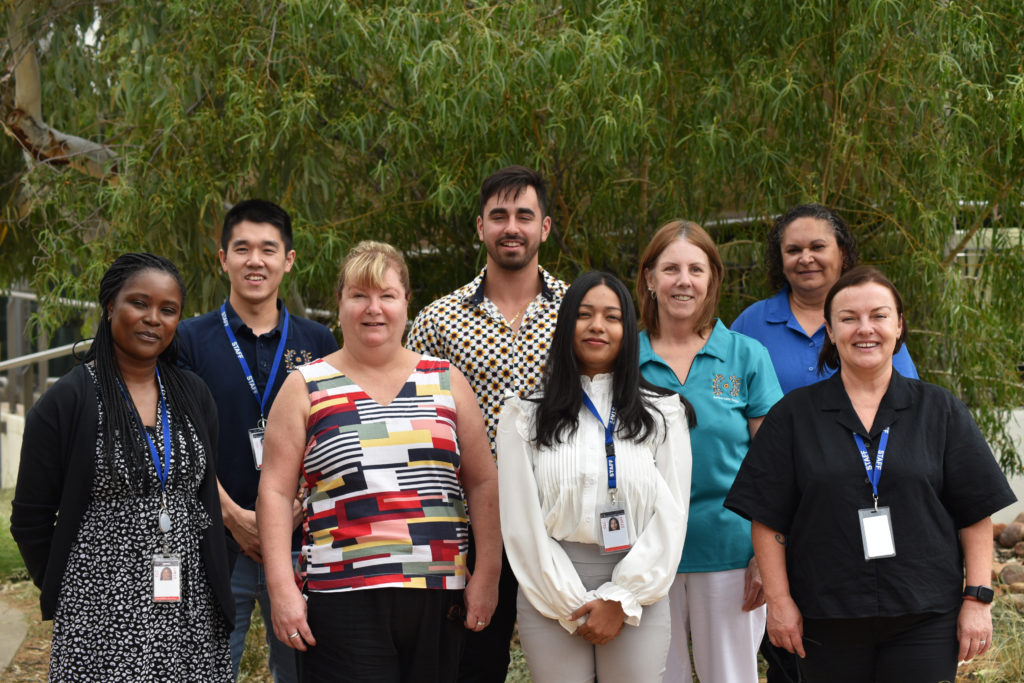
- Author: Kate Jones
- Posted: December 19, 2022
Very Remote Working. Life as a CFO in Alice Springs
It takes Robert Cairney just five minutes to drive from his home to his office. In Alice Springs, there’s no such thing as traffic and at 7.30am, when Cairney hits the road, there’s barely any other cars on the road.
It’s been eight years since he moved from Adelaide to Alice to work at the Central Land Council (CLC), first as financial controller and as of five months ago, CFO.
The isolation of the Red Centre would be daunting for many and unworkable for others. The tyranny of distance makes it challenging to recruit staff and the cost of living is higher than in most capital cities. But for Cairney, Alice is ideal.
“If you can relate to the movie The Castle, it’s the ‘serenity’,” he said. “And the people are country people. Up here if you walk down the street and you make eye contact with someone, you say, ‘G’day’. Do that in Adelaide and they think you’re up to something.”
Born in Broken Hill, Cairney is at home in remote towns. He has spent most of his working life in Adelaide, but working and living in Alice Springs is like coming full circle.
“Alice is very much like Broken Hill and you know the old saying, home is where the heart is? Well, Broken Hill is home,” he said.
Cairney’s role at the CLC only ever began as a temporary position. He was called out of semi-retirement to warm the financial controller’s chair while a new one was hired. That was in June 2014, but by November 2015 the CLC knew they were on to a good thing and asked him to stay permanently.
It was a win-win all round with Cairney determined to avoid full blown retirement.
“When you get to my age, you find it difficult to get employment if you want to work and I tried retirement, and it doesn’t work for me,” he said.
“I don’t play golf, I don’t garden. And if you enjoy what you’re doing, why do you have to stop?”
The CLC plays an integral role in the Northern Territory. It advocates for Aboriginal people living in central Australia by helping them to claim back their country and manage by resolving land disputes, native title claims and compensation cases.
The council is made up of 90 elected Aboriginal people who preside over more than 780,000 square kilometres of the Northern Territory.
Its main role is to help people regain their land and assist them to use that land to generate income.
This is where Cairney and his finance team of 15 come in.
“We have a unit that assists people in using the money they receive for the use of their land to put it to good use in their community,” he said.
“Our Community Development unit works with the different communities and assists them to invest in beneficial community projects.
“They can build something from a water park to a shade shed at a bus stop. The money can vary from thousands of dollars, to many hundreds of thousands of dollars and its money that is generated from third parties using their land.”
With more than 40 plus years of experience in the finance industry, Cairney is a seasoned practitioner.
Before working at the CLC in Alice Springs, he spent three years as CFO and deputy CEO at Minda, a South Australian not-for-profit organisation providing residential, employment, care and support services to people living with an intellectual disability.
Cairney had come from Southern Cross Care, a retirement services organisation, where he was CFO for four years. Prior to that, he had worked at the Australian Submarine Corporation for 12 years, including six as CFO.
Throughout his career as a CFO, Cairney has steered sizable finance teams through an impressive array of ups and downs; various governments, the recession of the early 1990s, the GFC and most recently, the COVID pandemic.
Like many organisations, the CLC was hamstrung by pandemic restrictions. But unlike most, they had the added hardship of being removed from much of their clientele when the federal government closed off remote communities in the Northern Territory to protect Aboriginal people from COVID.

The town of Alice Springs was isolated from most of Australia for more than four months, which made family life challenging for staff like Cairney who flies home to his wife, children and grandchildren in Adelaide every two to three weeks.
“We couldn’t leave town, and so most of our staff had to work from home as we closed our offices down to only essential operations,” he said.
“What we did with the finance department was we work to a roster. We didn’t have the whole department in at the same time, so there was plenty of physical space between each other.”
Restrictions imposed by the pandemic left a lasting mark on the department with some still working from home – something Cairney said he finds difficult.
“I’m not a believer in working from home or remote working,” he said.
“But I recognise that that’s partly my generation. It’s the way of the world today and I have to accept that most now consider this practice as normal.
“Because of the fact that we’ve got a business scattered over 800,000 square kilometres, most of our managers wouldn’t necessarily function all that well if they’re outside of Alice Springs.”
Next year promises to bring more challenges, but also more opportunities for Cairney and his team. The CLC will undergo an organisational restructure estimated to take six months, a new finance system via Microsoft 365 will be introduced and an extensive capital works program will get underway to replace approximately 40 cars in the organisation’s fleet.
The proposed referendum on the proposed Voice to Parliament will also be a major challenge for the CLC, who will endeavour to do its bit to ensure the Central Northern Territory’s Aboriginal people are fully informed of the proposal and are enrolled to vote.
Cairney says he takes all that comes before him in his stride, something he said is made possible by placing faith in his team.
“I’ve always had that philosophy of, you hire the right people,” he said, “And you let them do their job.”
“And you never ask someone to do something that you’re not prepared to do yourself.
“I wouldn’t ask you to do this if I wasn’t prepared to do it. But it’s not my job, it’s yours, so you’ve got to do it. You just offer them support.”
Cairney said he suspects he may be Australia’s oldest CFO and in 2023, he’ll rack up another year in the finance industry, another year with the CLC and he has no plans to retire.
“I enjoy what I do, and I support what CLC does,” he said.“I enjoy the people. I enjoy the challenges. I enjoy what the CLC does. It serves well the Aboriginal communities of the Central Northern Territory.
“So one day I’ll give up and go home, but not for a little while. Not today or tomorrow or next week.”








